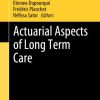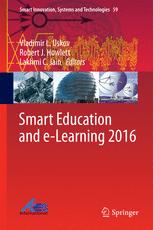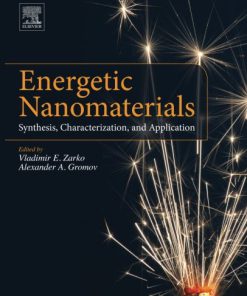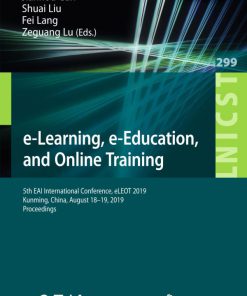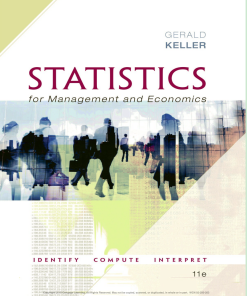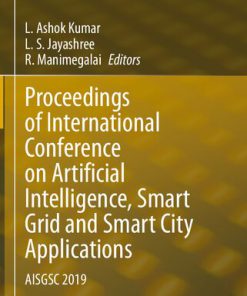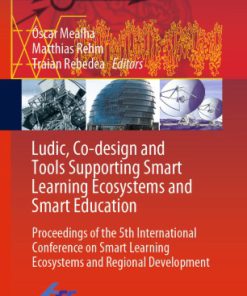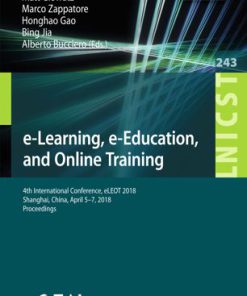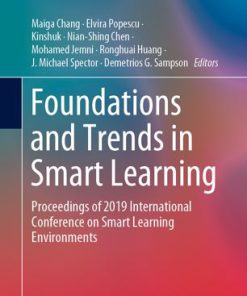Smart Education and e-Learning 2019 1st edition by Vladimir Uskov, Robert Howlett, Lakhmi Jain ISBN 9811382603 9789811382604
$50.00 Original price was: $50.00.$25.00Current price is: $25.00.
Smart Education and e-Learning 2019 1st edition by Vladimir L. Uskov, Robert J. Howlett, Lakhmi C. Jain – Ebook PDF Instant Download/Delivery: 9811382603, 978-9811382604
Full dowload Smart Education and e-Learning 2019 Edition after payment
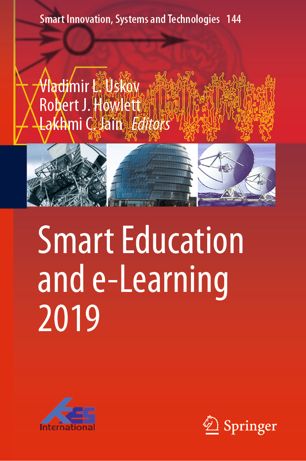
Product details:
ISBN 10: 9811382603
ISBN 13: 978-9811382604
Author: Vladimir L. Uskov, Robert J. Howlett, Lakhmi C. Jain
This book contains the contributions presented at the 6th international KES conference on Smart Education and e-Learning (KES SEEL-2019), which took place at St. Julian’s, Malta, June 17–19, 2019. It contains fifty-five high-quality peer-reviewed papers that are grouped into several interconnected parts: Part 1 – Smart Education, Part 2 – Smart e-Learning, Part 3 – Smart Pedagogy, Part 4 – Smart Education: Systems and Technology, Part 5 – Smart Education: Case Studies and Research, Part 6 – Students with Disabilities and Smart Education/University, and Part 7 – Mathematical Modelling of Smart Education and Economics of Smart University.
Smart education and smart e-learning are emerging and rapidly growing areas with the potential to transform existing teaching strategies, learning environments, and educational activities and technology in the classroom. Smart education and smart e-learning focus on enabling instructors to develop new ways of achieving excellence in teaching in highly technological smart classrooms, and providing students with new opportunities to maximize their success and select the best options for their education, location and learning style, as well as the mode of content delivery. This book serves as a useful source of research data and valuable information on current research projects, best practices and case studies for faculty, scholars, Ph.D. students, administrators, and practitioners – all those who are interested in smart education and smart e-learning.
Smart Education and e-Learning 2019 Table of contents:
Part I. Smart Education
1. Smart University: A Validation of “Smartness Features—Main Components” Matrix by Real-World Examples and Best Practices from Universities Worldwide
2. Quantitative Follow-Up of MOOC Students Using Big Data Techniques
3. Classification of University Students Attending Computing Classes Using a Self-assessment Questionnaire
4. Smart Education in an Interconnected World: Virtual, Collaborative, Project-Based Courses to Teach Global Software Engineering
5. Smarter Education: Leveraging Stakeholder Inputs to Develop Work Ready Curricula
Part II. Smart e-Learning
6. Teaching Culture and Literature of German-Speaking Countries with the Support of Virtual Learning Environment in Reflection and Self-reflection of Students of Management of Tourism—A Case Study
7. Sampling and Analyzing Statistical Data to Predict the Performance of MOOC
8. The Development of Classroom Research Skills of Online Lessons Usage of a Google Classroom
9. Interculturality in Blended Learning: Challenges of Electronic Communication
10. Machine Learning Approach of Predicting Learning Outcomes of MOOCs to Increase Its Performance
11. A Development of Instructional Games for Education Students
12. The Methodology of Development of Electronic Educational Resources for Learning of General Scientific Disciplines in Non-native Language
13. Visualization of Learning Activities in Classroom Blended with e-Learning System
14. Dosage Effects of CAI on Literacy Skills
15. Construction of a Socio-affective Profile Model of Students in a Virtual Learning Environment
16. Smart e-Learning in the Preparation of Novice Pop Vocalists in the University
17. Communication with Students in Smart e-Learning System Using LMS Moodle
Part III. Smart Pedagogy
18. Smart Learning Objects for Online and Blended Learning Approach
19. Using Ontology Engineering to Design an Artificial Intelligence Course
20. Development and Implementation of BIPV Courseware for Higher Education and Professionals
21. An Engineering Educational Program Using “Twin Rotor MIMO System” Laboratory Platform
22. Competency-Based Approach Teaching Software Engineering
23. Randomized Controlled Trial of Kindergarten Students Using Literacy Technology
Part IV. Smart Education: Systems and Technology
24. Mandatory Matching Between Microelectronics Industry and Higher Education in Engineering Toward a Digital Society
25. An Approach to Educational Data Mining Model Accuracy Improvement Using Histogram Discretization and Combining Classifiers into an Ensemble
26. Performance Evaluation for Four Types of Machine Learning Algorithms Using Educational Open Data
27. Moving from Hardcopy to Online Submission with a Learning Analytics Enriched Rubric—LAe-R: Students’ Perspective
28. Use of Mobile Devices—A Survey Study
29. SEMOGRAPH Information System as a Platform for Network-Based Linguistic Research: A Case Study of Verbal Behavior of Social Network Users
30. Mobile Application as Appropriate Support for the Retention of New English Words and Phrases in English-Language Learning
31. Route Navigation System—An App-Based Learning Tool for Bus Drivers
32. Information Technology and Teaching Culture: Application in Classroom
33. Overview of Recommendation Systems
Part V. Smart Education: Case Studies and Research
34. Upgrading How Technology Is Taught in Undergraduate Education, a Case Study
35. Teaching Entrepreneurship and Innovation to University Students
36. Some Aspects of Students’ Professional Competence Formation on the Basis of Implementation of Interdisciplinary Links
37. Reflection of Students’ Language Needs Analysis in the e-Course—Comparative Study
38. Investigation into Parents’ Impressions of Computer Programming with Comparisons Before and After a Programming Workshop
39. The Impact of Feedback on the Structuring Process of Study Courses
Part VI. Students with Disabilities and Smart Education/University
40. Analysis and Classification of University Centers for Students with Disabilities
41. Augmented Reality as a Higher Education Form for Students with Delimited Ability
42. Smart University: Software/Hardware Systems for College Students with Severe Motion/Mobility Issues
43. Design Guidelines for Serious Games Targeted to People with Autism
44. Making Your Classroom Smart: Universal Design for Learning and Technology
45. Text-to-Voice and Voice-to-Text Software Systems and Students with Disabilities: A Research Synthesis
Part VII. Mathematical Modelling of Smart Education and Economics of Smart University
46. Testing as a Feedback in a Smart University and as a Component of the Identification of Smart Systems
47. Smart University Development Evaluation Models
48. Modeling of Scientific Intercultural Communication of the Teaching Staff at Smart University
49. Modeling Smart Learning Processes Based on Educational Data Mining Tools
50. Modeling the Assessment of Definition of a Smart University Infrastructure Development Level
51. Smart University: Assessment Models for Resources and Economic Potential
52. Identification of Key Factors for a Development of Smart Organization
53. Application of Multivariate Statistical Methods for Assessment of Educational Competencies
54. Modeling, Selection, and Teaching Staff Training at Higher School
55. The Remote Process Support for Collaborative Work
People also search for Smart Education and e-Learning 2019:
smart education and e learning smart pedagogy
how to be smart in education
smart-ed early learning center
a learning management system for e-training
difference between e-learning and virtual learning
Tags:
Vladimir Uskov,Robert Howlett,Lakhmi Jain,Smart,Education,Learning 2019 1st
You may also like…
Engineering
Energetic nanomaterials : synthesis, characterization, and application 1st Edition Vladimir E Zarko
Computers - Programming
Mathematics - Mathematical Statistics
Statistics for Management and Economics 11th Edition G E R A L D K E L L E R
Engineering - Civil & Structural Engineering
Education Studies & Teaching - School Education & Teaching
Education Studies & Teaching


